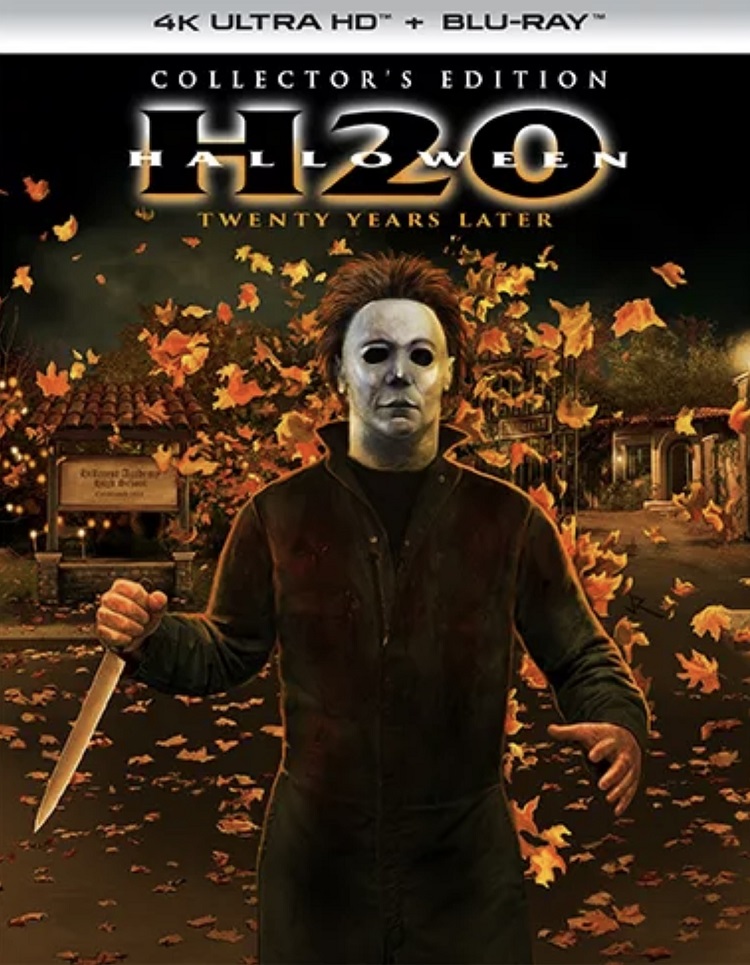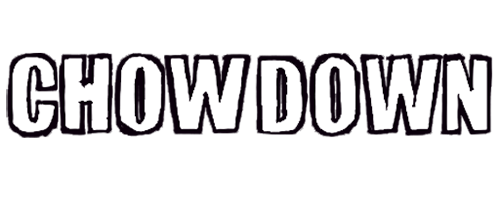No products in the cart.
News
How Many Halloween Movies Are There: A Comprehensive Guide
Halloween is undoubtedly one of the most iconic horror franchises of all time. With its masked killer, Michael Myers, and the scream queen, Laurie Strode, the series has captivated audiences for decades. However, with numerous sequels, remakes, and retcons, it can be challenging to keep track of how many Halloween movies are actually part of the canon. In this comprehensive guide, we will dive into the twisted timeline of the Halloween franchise and unravel the mysteries surrounding its numerous installments.
Contents
- The Origins of Halloween: The 1978 Classic
- The Original Timeline: Sibling Revelations and Thorn Cult
- Resetting the Timeline: Halloween H20 and Resurrection
- Rob Zombie’s Remakes: A Dark and Gritty Reinvention
- The Reboot Trilogy: Returning to the Roots
- Deciphering the Canon: Which Movies Are Considered Official?
- The Future of Halloween: Will Michael Myers Return?
- Conclusion
The Origins of Halloween: The 1978 Classic
The Halloween franchise began with the release of John Carpenter’s seminal horror film, “Halloween,” in 1978. The movie introduced audiences to the terrifying figure of Michael Myers, a masked killer who goes on a murderous rampage on Halloween night. The film follows Laurie Strode, played by Jamie Lee Curtis, as she becomes the primary target of Michael’s relentless pursuit.
The Original Timeline: Sibling Revelations and Thorn Cult
The original timeline of the Halloween franchise covers the films from Carpenter’s 1978 original to “Halloween 6: The Curse of Michael Myers.” In this timeline, it is revealed that Laurie Strode and Michael Myers are siblings, which adds an extra layer of psychological horror to their cat-and-mouse game.
The original timeline includes several notable entries:
- “Halloween II” (1981): This sequel picks up immediately after the events of the first film and delves deeper into the connection between Laurie and Michael.
- “Halloween III: Season of the Witch” (1982): This entry deviates from the Michael Myers storyline and takes a unique approach by presenting an unrelated Halloween-themed story.
- “Halloween 4: The Return of Michael Myers” (1988): After a brief hiatus from the franchise, Michael Myers returns in this installment, now targeting Laurie’s daughter, Jamie Lloyd.
- “Halloween 5: The Revenge of Michael Myers” (1989): Jamie Lloyd continues to be pursued by Michael Myers, with the addition of a mysterious Man in Black and the Cult of Thorn.
- “Halloween 6: The Curse of Michael Myers” (1995): The sixth film delves deeper into the mythology of the franchise, introducing the Curse of Thorn and the conspiracy surrounding Michael’s murderous impulses.
Resetting the Timeline: Halloween H20 and Resurrection
The Halloween franchise underwent a significant reset with the release of “Halloween H20: 20 Years Later” in 1998. This film disregards the events of the previous three sequels and serves as a direct continuation of the original timeline, ignoring the supernatural elements introduced in “Halloween 6.”

In this revised timeline, Laurie Strode, played by Jamie Lee Curtis, is revealed to have faked her death and is now living under a different identity. The film follows Laurie’s encounter with Michael Myers 20 years after the events of the original film and sets the stage for the subsequent entry, “Halloween: Resurrection.”
Rob Zombie’s Remakes: A Dark and Gritty Reinvention
Filmmaker Rob Zombie put his unique spin on the Halloween franchise with his two remakes, simply titled “Halloween” (2007) and “Halloween II” (2009). These films serve as reimaginings of the original Halloween and its sequel, delving deep into Michael Myers’ backstory and providing a grittier and more brutal take on the character.
Zombie’s remakes exist in their own separate universe and are not considered part of the main Halloween canon.
The Reboot Trilogy: Returning to the Roots
In 2018, the Halloween franchise was given a fresh start with the release of “Halloween,” directed by David Gordon Green. This film serves as a direct sequel to the original 1978 film, disregarding all the previous sequels and retcons.
The reboot trilogy includes the following films:
- “Halloween” (2018): This film reunites Jamie Lee Curtis and Nick Castle as Laurie Strode and Michael Myers, respectively. It explores the aftermath of the original film and the impact it has had on Laurie’s life.
- “Halloween Kills” (2021): The second installment of the reboot trilogy continues the story, delving deeper into the trauma inflicted on the residents of Haddonfield and Laurie’s ongoing quest for revenge.
- “Halloween Ends” (2022): The final chapter of the reboot trilogy, “Halloween Ends,” is set to conclude the saga and provide closure to the decades-long battle between Laurie Strode and Michael Myers.
Deciphering the Canon: Which Movies Are Considered Official?
Determining which Halloween movies are considered canon can be a daunting task due to the franchise’s convoluted timeline and numerous retcons. In general, the original timeline encompasses the films from John Carpenter’s 1978 “Halloween” to “Halloween 6: The Curse of Michael Myers.”
The reset timeline, initiated by “Halloween H20: 20 Years Later,” includes that film, “Halloween: Resurrection,” and the two Rob Zombie remakes.
The reboot trilogy, consisting of “Halloween” (2018), “Halloween Kills” (2021), and “Halloween Ends” (2022), is also considered canon, as it directly follows the events of the original 1978 film.
However, it’s important to note that the Halloween franchise has had multiple retcons and alternate timelines, causing some films to be disregarded and considered non-canon. For example, “Halloween III: Season of the Witch” is a standalone story unrelated to the Michael Myers/Laurie Strode narrative and is not considered part of the canon in any timeline.
The Future of Halloween: Will Michael Myers Return?
With the upcoming release of “Halloween Ends,” the current trilogy is set to conclude, providing closure to the story of Michael Myers and Laurie Strode. However, the allure of the Halloween franchise and its iconic characters may lead to future iterations.
Jason Blum, the producer of the reboot trilogy, has expressed his willingness to continue the franchise beyond “Halloween Ends” if there is a demand for it. While the specifics remain uncertain, there is always the possibility of exploring new timelines, reboots, or even an anthology approach.
Ultimately, the future of the Halloween franchise will depend on the audience’s appetite for more Michael Myers and the creative vision of the filmmakers involved.
Conclusion
In conclusion, the Halloween franchise has evolved over the years, weaving a complex web of timelines, sequels, and remakes. Determining how many Halloween movies are there and which ones are considered canon can be a challenging task. However, by understanding the origins, the original timeline, the reset timeline, the Rob Zombie remakes, and the reboot trilogy, fans can navigate the Halloween universe with a clearer understanding of its intricate mythology.
As the Halloween saga continues to terrify audiences, it remains a beloved and enduring franchise in the horror genre. Whether it’s through the classic 1978 film, the suspenseful sequels, or the gritty reinventions, Michael Myers and Laurie Strode’s battle will continue to haunt our nightmares for years to come.
>> See more: Horror ugly Christmas sweater

IDEAS & ADVICE
Is Thor Marvel Or DC? Unveiling The True Comic Book Universe Of The Mighty Thunder God
Explore the enigmatic origins of Thor, the Norse god of thunder, and uncover the truth [...]
Unveiling The Ultimate Showdown: Who Is Stronger Thor Or Captain Marvel?
Discover the ultimate power struggle in the Marvel Cinematic Universe with Thor and Captain Marvel. [...]
Is Wolverine An Anti Hero? Exploring The Complexities Of Marvel’s Iconic Character
Wolverine, also known as Logan, is one of the most complex and beloved characters in [...]
Does Wolverine Age? Unraveling The Mystery Of Wolverine’s Immortality
Wolverine, also known as Logan, is one of Marvel Comics’ most iconic characters, beloved for [...]
Is Hulk Hogan Married? Unveiling The Personal Life Of The Wrestling Icon
Looking for the latest updates on Hulk Hogan’s personal life? Wondering, “Is Hulk Hogan married?” [...]
Is Hulk Immortal? Exploring The Incredible Hulk’s Endurance And Longevity
The Hulk, one of Marvel’s most iconic characters, has long been a subject of fascination [...]
Who Plays Quicksilver In Avengers? Unraveling The Marvel Cinematic Universe’s Speedster
Quicksilver, the lightning-fast superhero from the Avengers, has been portrayed by various actors throughout the [...]
Silver Screen Speedster: What Movie Is Quicksilver In?
Quicksilver, the lightning-fast superhero from the Marvel universe, has made a significant impact not only [...]